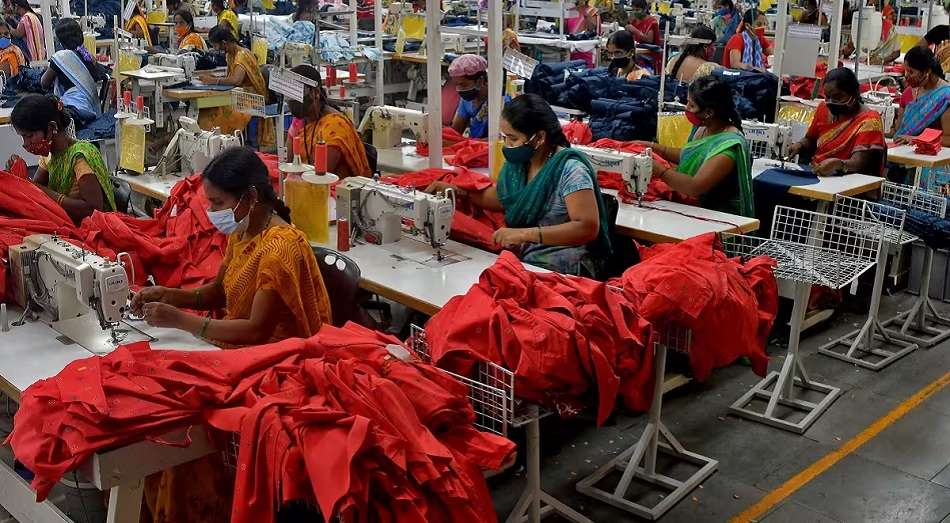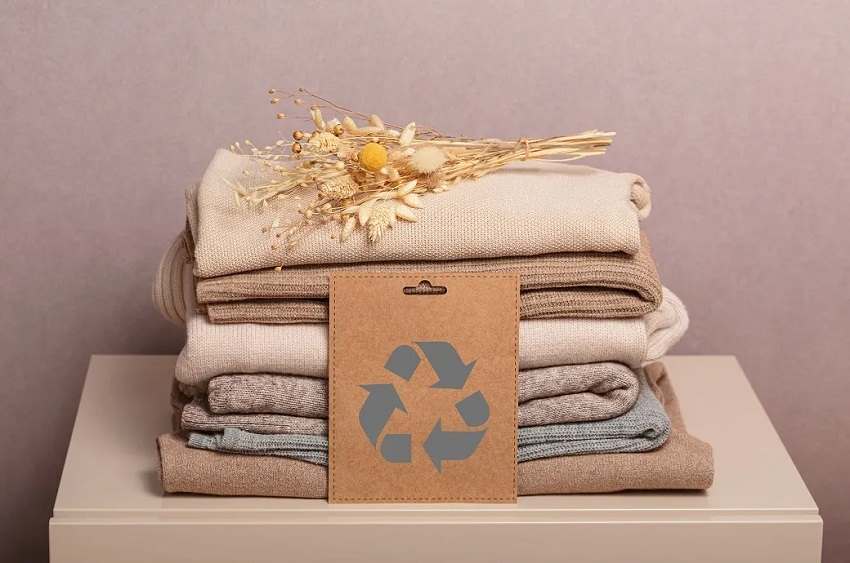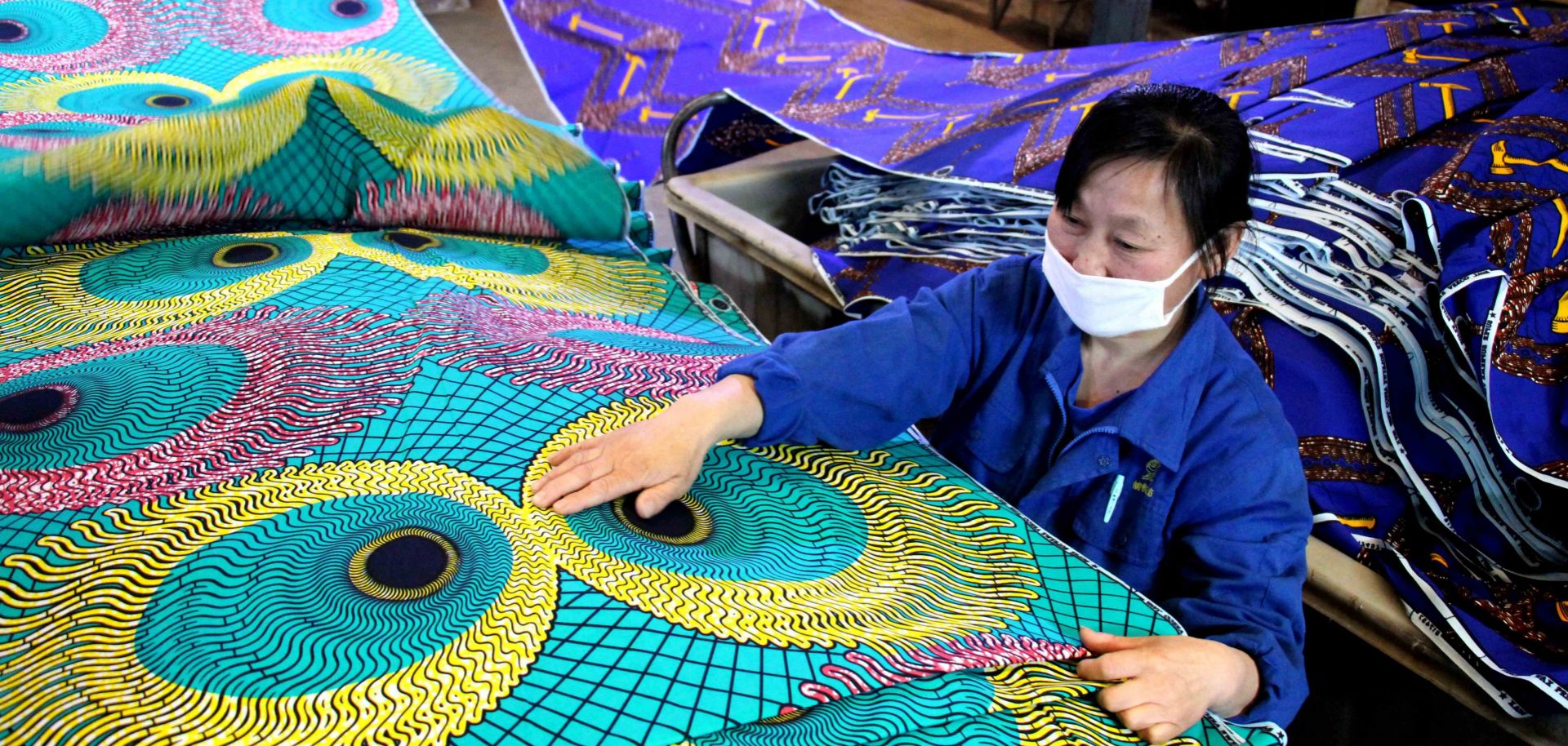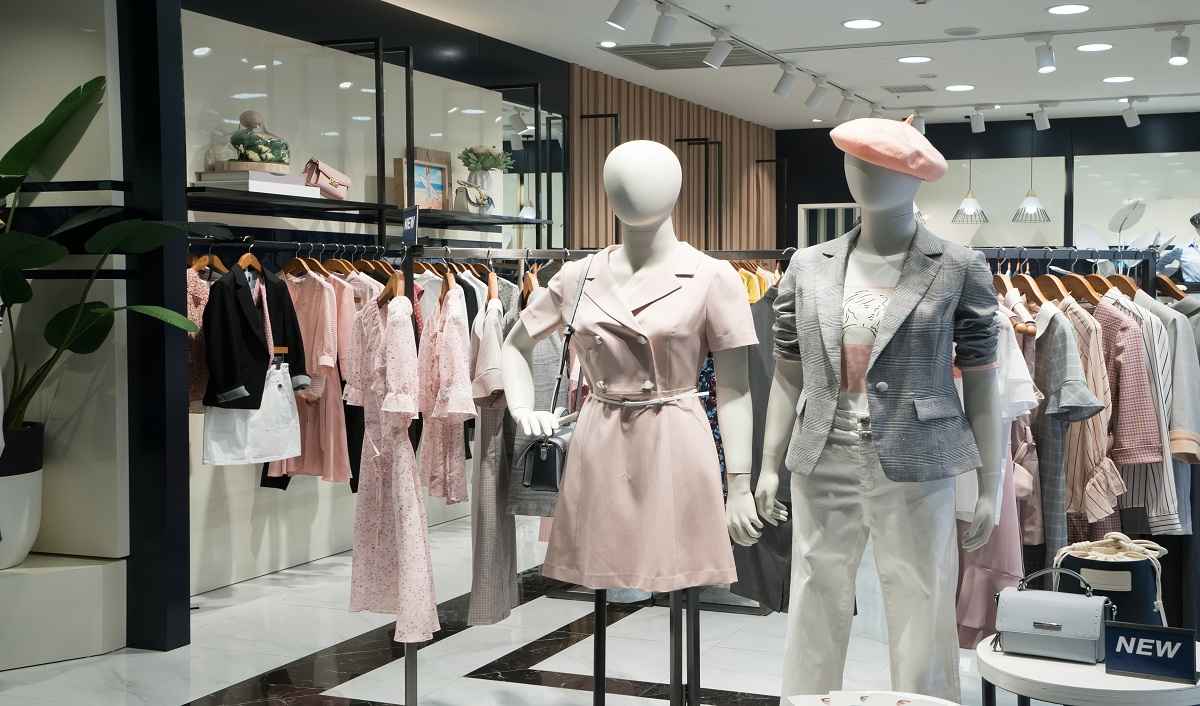FW
The Southern Gujarat Chamber of Commerce and Industry (SGCCI) will host the Yarn Expo - 2024 from August 9th to 11th at the Surat International Exhibition and Convention Centre, Sarsana. Covering 116,000 square feet, the event will feature over 80 exhibitors from various cities including Surat, Ahmedabad, Mumbai, and Bangalore.
SGCCI President Vijay Mewawala emphasized that the expo aims to boost Surat's textile industry by introducing the latest yarn production technologies. The sixth edition of the expo will display a wide range of yarns such as polyester, nylon, viscose, cotton, antibacterial, imitation silk, granite, and recycled yarns.
Vice President Nikhil Madrasi highlighted the participation of yarn manufacturers nationwide. The event expects more than 25,000 visitors, including genuine buyers from states like Tamil Nadu, Haryana, and Maharashtra.
Ramesh Vaghasia, Immediate Past President of SGCCI, noted that buyers and visitors from various cities across India, including Erode, Coimbatore, Hyderabad, and Bangalore, are expected to attend the yarn exhibition.
Honorary Secretary NiravMandlewala and Honorary Treasurer Mrunal Shukla noted that international buyers from countries like Peru, Thailand, Canada, Australia, and the USA have also been invited.
BijalJariwala, Chairman of All Exhibitions at SGCCI, mentioned that the expo will facilitate business meetings between manufacturers and buyers. Last year’s expo saw over 20,000 buyers, and this year anticipates an even larger turnout.
GirdhargopalMundra, Chairman of Yarn Expo - 2024, emphasized the showcase of diverse yarn varieties, aiming for significant business growth for exhibitors.
In a report titled ‘Opportunities & Challenges for Indian Textile & Apparel Sector’, the Indian Texpreneurs Federation (ITF) urgesGiriraj Singh Union Textile Minister to provide policy support to the industry to boost exports by capitalising on the opportunities presented by the China Plus One strategy adopted by western buyers.
According to the report presented by PrabhuDhamdodhran, Convenor, ITF, India currently exports apparels worth $1.5 billion every month which is significantly lower than China’s $12 billion. To improve its performance, the sector needs to focus on scale, competitiveness, specialisation, integration, and market diversification, he adds.
To make the SME-based apparel sector more efficient, the government needs to support a ‘ready-to-cut dyed fabric; ecosystem besides developing a semi-integrated and integrated manufacturing ecosystem to fulfill large apparel orders, Dhamodharanadds further. The government also needs to forge knowledge partnerships with MMF-specialised countries and within Indian clusters to increase India’s share in the US manmade fiber (MMF) apparel market from the current 2 per cent.
ITF proposes, the government select five exporters from five major textile clusters and help them diversify into non-traditional markets. Additionally, the industryalso needs to improve cotton yield, the report highlights.
Growing at a CAGR of 7.09 per cent, the global intimate apparel market is projected to reach a value of $49.8 billion by 2028.
As per a report by Technavio, growth in this market is being driven by a rising demand for customisationwith customers, especially women, seekingpersonalised and visually appealing products. This trend aligns with the rise of athleisure, enhancing consumer satisfaction by meeting individual preferences and sizes. However, intense competition due to low entry barriers poses challenges. Major players like Victoria's Secret, Hanesbrands, and Chantelle SA continue to innovate to stay relevant.
Evolving from a necessity to a fashionable category, intimate apparel is expanding its offerings to include versatile innerwear. Sports bras have gained popularity for their comfort, functionality, and fashion appeal. Manufacturers are responding to demand for better performance with innovative fabrics and designs. For instance, Chantelleoffers high-impact sports bras for various activities. Strategic partnerships, especially with yoga apparel specialists, are also on the rise. The market thrives on aesthetic value and fabric behavior, with innovations in yarns and treatment processes. Online sales are growing, especially among women who value convenience. However, counterfeit products remain a challenge, and brick-and-mortar stores provide authenticity and expertise.
The market is competitive, with players like AEO Management, Berkshire Hathaway, Hanesbrands, Jockey International, PVH, and L Brands. New entrants, including e-retailers and start-ups like adoreme.com, intensify competition, leading to price wars. To differentiate, key players are focusing on comfort, fabric quality, price, and variety. Price wars can lead to compromised quality, affecting consumer satisfaction. The market includes various items like undershirts, vests, lingerie, thermals, hosiery, sleep lingerie, bras, and panties for both men and women.
Seasonal swings, retail stocks, and the demand for comfortable, high-quality undergarments among working women are some of the significant challenges being faced by the industry. Comfort remains crucial, with briefs, bras, and boxers leading the segment. Bust-sized bras, medical fabrics, and outer garments add thermal, sensorial, and motion benefits. Men's intimate apparel includes vests, boxer shorts, and briefs. To succeed in this market, manufacturers need to adapt to the changing consumer preferences and seasonal demands.

The summer edition of Texworld Apparel Sourcing Paris featured nearly 1,200 exhibitors from 26 countries. Despite various challenges, the event introduced several new features and maintained a dynamic atmosphere. The next edition is set for February 10-12, 2025, at the partially renovated Paris-Le-Bourget exhibition center, promising a session full of new initiatives.
Attendance and market adaptation
Texworld Apparel Sourcing Paris, incorporating Avantex and Leatherworld sectors, concluded on July 3. Although attendance was down compared to July 2023, the "Olympic Games effect" and economic factors influenced transport and accommodation costs in Paris. Despite these hurdles, the event's organizers are exploring alternatives to adapt to market demands, maintaining a positive business environment.
Exhibitors and visitors reported satisfactory business exchanges. Indian shirt manufacturer Sheraton Apparel secured around thirty solid contacts over three days, including serious approaches from African distributors. Similarly, Turkish company SMIT, specializing in Made in Turkey sourcing, established connections with European customers and new contacts with Canadian and Brazilian buyers.
The Near Sourcing Hub, a phygital sourcing space connected to the B2B digital platform of Messe Frankfurt France partner FourSource, maintained inquiries at similar levels to 2023. Visitors, primarily buyers from small multi-specialist boutiques, sought original mid-to-top-range offerings. In response to market demand for differentiation, the organizers extended Apparel Sourcing’s range to include new categories such as jewelry and bags.
Innovative showcases
This summer's edition featured several high-profile initiatives. The yarn pavilion, a collaboration with Yarn Expo from Shanghai, highlighted expertise from Chinese, Indian, Pakistani, and Taiwanese companies, focusing on upstream products and services. Avantex grouped twenty suppliers offering sustainable fashion solutions, with the new Designer Hub showcasing original initiatives.
One notable initiative was stylist Jean-Luc François' association, supported by Messe Frankfurt’s Texpertise network, which trains individuals distant from employment. Additionally, the 3D design studio Scotomalab impressed fashion designer Katherine Pradeau with its fusion of 3D and AI technologies in traditional skills.
Materra, a British start-up founded in 2019, won the 2024 Avantex Fashion Pitch award. The company designs solutions for climate-adapted cotton cultivation and offers a Cotton-As-A-Service model to brands. Materra's award includes a €2,800 stand at Avantex Paris 2025, €2,000 from the Texpertise Network, and a year’s incubation at Foundry donated by IFA Paris.
The Leatherworld sector introduced the Leather Trend area, developed with Edizioni AF and the Arsutoria School design centre. This space showcased autumn-winter 25-26 trends through four creative axes: simplicity, nature, dynamism (sportswear collections), and romanticism. Additionally, Ecotan’s new leather tanning technology, avoiding metals and chemicals using vegetable tannins, was highlighted.
Focus on sustainability: Econogy tour
This year's trade fairs emphasized TexpertiseEconogy, combining ecology and economic development. The Econogy Finder identified suppliers of sustainably produced textiles, marked with Econogy symbols after CSR verification. Econogy Talks featured conferences on the sustainable economy, and the new Econogy Tour offered guided tours to meet certified companies. Companies like Cradle to Cradle and TUV Rheinland, specializing in CSR certification, and manufacturers like India’s Skosh Commercial, producing organic cotton T-shirts and jerseys, were showcased.
A global chemical company, Huntsman has secured Bluesign approval for ten of its Irogran thermoplastic polyurethane (TPU) products, widely used in the textile and apparel industry. A part of Huntsman’s Irogran film and sheet portfolio, these products enhance the production, performance, and comfort of stitchless, seamless garments such as underwear, sportswear, and outdoor clothing.
The Bluesign-approved Irogran products help manufacturers create practical, comfortable, and stylish stitchless and waterproof garments. Designed for barrier and adhesive film applications, Irogran’sTPUs combine abrasion and friction resistance with elasticity and a soft touch, while also offering strength and temperature flexibility for a seamless, high-performance finish.
A globally recognised sustainability solutions provider, Bluesignensures sound environmental practices and products throughout the textile value chain. Products bearing the bluesignapproved label meet strict ecological and toxicological standards as set out by bluesigncriteria. For textile and apparel manufacturers,this endorsement significantly reduces the time and cost associated with verifying environmental credentials of products.
Dr. Anja Weismann, Senior Leader-Global Materials & Industry Sustainability, Huntsman Polyurethanes, states, a hallmark of qualityBluesign is actively changing the impact that textiles have on the planet, for good. Huntsman’scollaboration with Bluesign reinforces its commitment and efforts to manufacture polyurethane and TPU products with the lowest possible impact on people and the planet.
Already struggling with export market competition from Bangladesh and China, the Tiruppur knitwear industry now faces challenges in the domestic market as well. This year, knitwear production for the Indian market, valued at Rs 30,000 crore, plummeted by nearly 60 per cent.
Garment manufacturersare highlighting the lower production costs in states like Punjab and Gujarat, which are closer to man-made fabric (MMF or synthetic) manufacturers.
Production costs in these states are at least Rs 80 per garment cheaper than in Tamil Nadu. They are urging the state government to establish a special committee to protect the domestic industry and encourage synthetic fabric production within the state.
MPMuthurathnam, President, Tiruppur Exporters and Manufacturers Association, states, typically, most orders come from cities like Delhi, Mumbai, and Bengaluru. However, this year, the orders have shifted to Gujarat, Punjab, Bihar, and Odisha, mainly due to the cost of production differences.
He notes,domestic production is dominated by garments made from MMF rather than cotton. The association is compelled to source these fabrics from cities like Surat and Ludhiana before it processes, stitches, and dispatches finished garments from Tiruppur.
With the emergence of large-scale domestic production units in other states, demand for garments from Tiruppur has decreased. The rise in labor wages and zero-discharge of effluents has led to an increase in production costs in the state. Transportation alone costs Rs 18 per kg. Therefore, the state government needs to promote synthetic or MMF fabric production locally, urges Muthurrathnam.
MG Kumar, Vice-President, Tiruppur Seconds Baniyan Owners’ Association, adds, there is a massive stockpile of knitwear in Khadarpet, Tiruppur’s domestic knitwear trade hub. However, orders from Delhi and Mumbai have declined. The demand for pure cotton garments is decreasing as polyester ones are Rs 170 cheaper per piece.
Cheap synthetic fabric from China and Bangladesh is being imported to Kolkata, Kumar adds urging for a ban such imports.
The Lycra Company unveiled its latest innovation, a new patent-pending bio-derived Lycra fiber, at MarediModa, held as a part of Milano Unica.
Hosted for the first time in Milan, MarediModa showcased premium fabric collections from Europe for beachwear, athleisure, leisure, outdoor, citywear, and upper casual segments.
The new fiber is claimed to be the world's first sustainable and renewable elastane produced on a large scale and will be available globally in early 2025. Made from renewable field corn, this bio-derived Lycra fiber is estimated to reduce the carbon footprint by up to 44 per cent compared to standard Lycra fiber made from fossil-based raw materials, according to a Life Cycle Assessment (LCA) Cradle-to-Gate Screening study by Ramboll Americas Engineering Solutions, Inc. conducted in June 2022.
Alistair Williamson, Vice President-EMEA, The Lycra Company, says, the bio-derived fiber will enable Lycra to reduce carbon footprint by providing a sustainable alternative without compromising quality and performance.
In addition to the bio-derived Lycra fiber, the company presented new fabrics and swimwear made with Lycra Xtra Life fiber, which offers resistance to chlorine, heat, and creams while maintaining excellent comfort levels. They also showcased Lycra Adaptiv fiber, which adapts to different body shapes and provides comfortable fits even during physical activities.
Esteemed Italian wool fabric specialist, LanificioSuccessoriReda (Reda) is embarking on several new projects to expand its operations. These include the launch of contemporary cashmere fabrics and a wider collaboration with Vilebrequin for men’s bathing suits, alongside a partnership with Eurojersey for a new series of double-strata sporty-chic fabrics.
Hailing from Biella, Redaaims to reinvent wool beyond traditional uses while emphasising its sustainable identity. Since 2020, Reda has been B Corp certified, reflecting its adherence to the highest social and environmental standards.
The company boasts several specialised divisions: Reda Active focuses on high-performance fabrics ideal for physical activity and daily challenges, while RedaFlexospecialises in smart stretch fabrics made from an environmentally friendly next-generation polymer. Rewoolution is dedicated to producing high-performance sports and leisure wear from pure Merino wool. Lanieri Italia offers made-to-measure clothing through an e-commerce platform that combines technological innovation with traditional tailoring.
At the latest Milano Unica, ErcoleBottoPoala, CEO, presented ‘The Goat,’ a collection of cashmere fabrics aimed at contemporary, street-inspired total looks. Named after the acronym ‘Greatest of All Time,’ the collection features garments far removed from classic formal schemes, characterised by oversized, comfortable, and functional fits. The high-quality cashmere ensures unparalleled softness and durability, with optional water-repellent treatments for added practicality.
In collaboration with The Woolmark Company, Reda has also developed high-performance, low-impact wool swimwear for Vilebrequin. Since Spring/Summer 2022, this partnership has produced men's swim shorts made from Reda’s Super 120's Merino wool Active. The capsule collection for Spring/Summer 2024 includes new color variants and additional garments like shirts and drawstring pants, all benefiting from Merino wool’s hypoallergenic, breathable, and thermoregulating properties.
Additionally, Reda has teamed up with Eurojersey to create Techblend, a fabric that combines Eurojersey’s Sensitive Fabrics with Reda Active’s Merino wool jersey. This innovative material offers comfort, stretch, odor absorption, and breathability, suitable for tailored styles. The fabric features a bio-wicking treatment for greater breathability and rapid drying.
The company behind the Onitsuka Tiger brand, Asics has raised its net profit and sales forecasts for the fiscal year ending December 2024. The company expects a record operating profit of ¥95 billion ($596 million) during the year.
The company has benefited from the weakening yen. Demand outside Japan surged in the second quarter, with a 38 per cent increase in Greater China, a 30 per cent rise in Southeast and South Asia, and a 16 per cent growth in the United States compared to the same period last year. Domestic sales also climbed by 24 per cent.
The company attributes its recent success to the popularity of resurrection models like the Gel-1130 and Gel-Kayano 14, favored by fitness enthusiasts and celebrities such as Hailey Bieber, which are expected to continue performing well in the future.
Glo-Djigbe Industrial Zone (GDIZ) proudly announces its first export of "Made in Benin" garments to Europe. The initial shipment includes 80,000 children's leggings for the French brand Kiabi. This milestone signifies the start of a promising collaboration between Sipi-Benin and Kiabi, with plans to deliver two million garments in 2024 and 4 million in 2025.
The two-year negotiation culminated in this significant achievement, highlighting Benin's ability to meet international quality standards. Kiabi joins other prestigious brands like The Children’s Place and US PoloAssn in partnering with GDIZ, reinforcing its position as a key textile hub in Africa.
LetondjiBeheton, Managing Director of Sipi-Benin SA, expressed pride in this accomplishment, emphasizing the commitment to promoting Benin's textile industry globally. He noted Kiabi's growing collaboration with Africa for garment production and plans to expand retail presence on the continent.
Penagos Juan, CEO of Kiabi Sourcing, highlighted the alignment with Kiabi's strategy to produce closer to its sales points and praised the partnership with Arise and Benin. Kiabi aims to produce 30 million pieces in Africa, emphasizing sustainability and the use of 100 per cent Made in Africa cotton.












